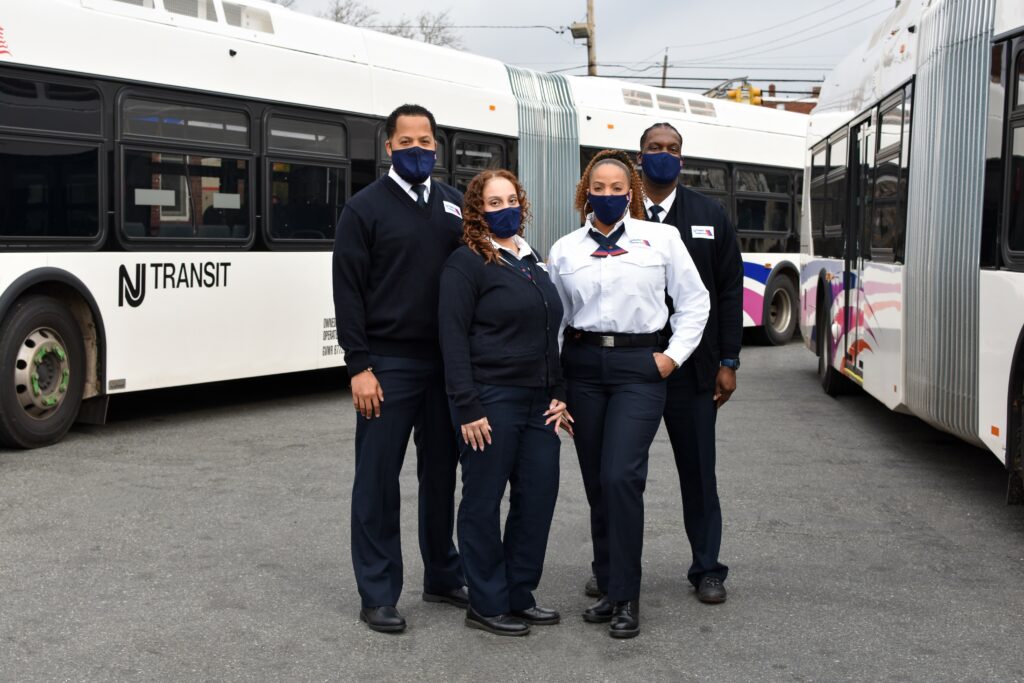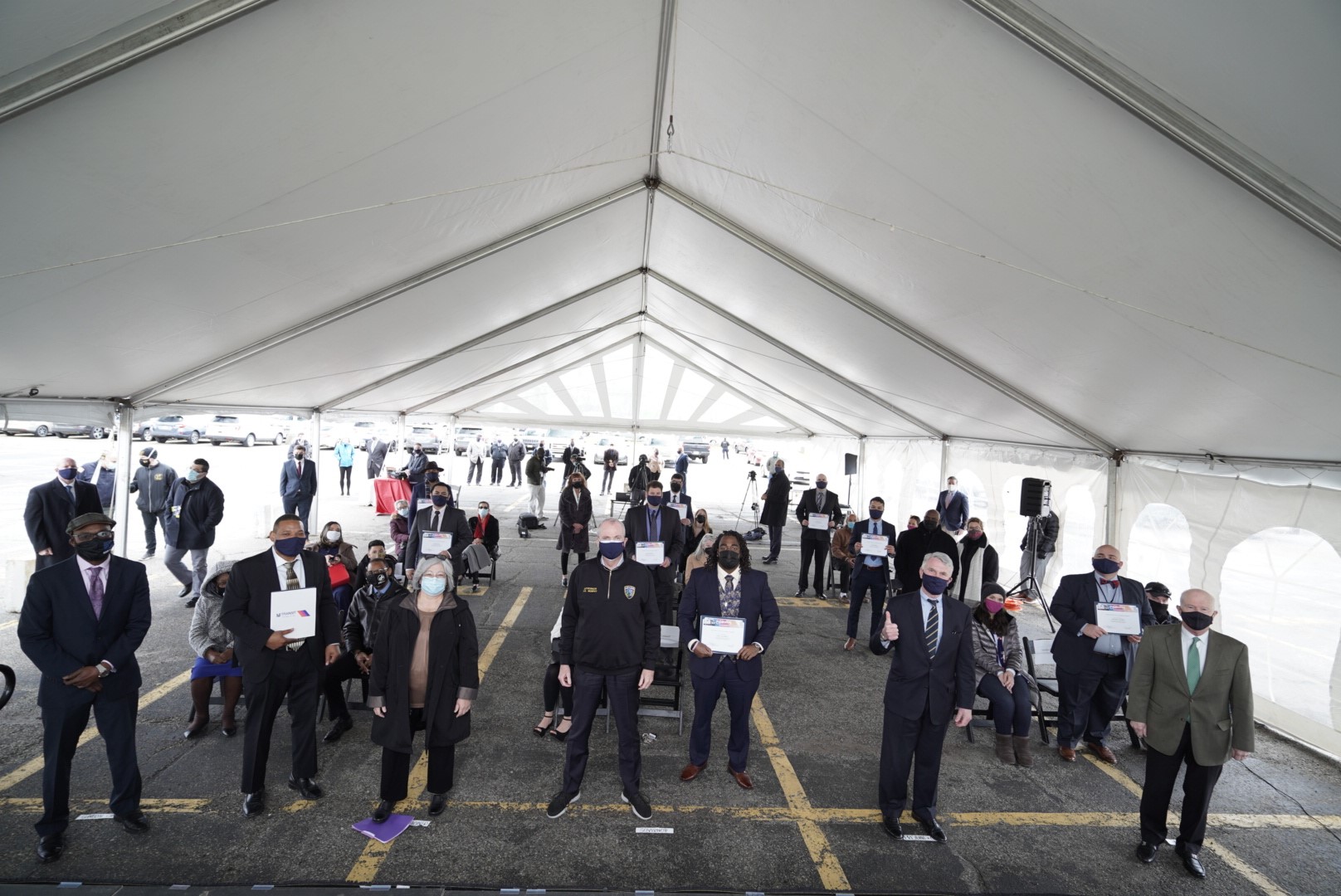All Aboard the Improved NJ TRANSIT Experience (Sponsored Content)

NEWARK- NJ TRANSIT never wavered in its focus on enhancing performance and reliability while keeping customers safe on its transit system despite the many challenges brought by the COVID-19 pandemic. For more than 16 months, NJ TRANSIT’s dedicated front-line employees have kept essential workers and those who depend on transit on the move, while continuing to improve the on-time performance of its trains, buses, and light rail.
As NJ TRANSIT customers return to the office, they’ll notice improved reliability thanks to the work over the last three years to fully restore the ranks of locomotive engineers, graduating more than 100 new engineers since 2018. NJ TRANSIT has also added more than 1,000 bus operators since 2018 and continues to recruit, hire and train for critical frontline positions, including locomotive engineers, conductors and bus operators.
NJ TRANSIT operates thousands of trains, buses, and light rail trips every day. Since 2018, the company has made considerable progress to fulfill mandatory safety requirements, modernize its fleet, communicate real-time service status conveniently, and recruit and train for critical positions, such as bus operators and locomotive engineers.
NJ TRANSIT marked 100 percent completion of the Federal Railroad Administration's (FRA) requirement to install Positive Train Control (PTC) before the December 31, 2020 deadline – despite being only 12% complete in January 2018 toward an interim December 2018 installation milestone
From Fiscal Year (FY) 2019 to FY2020, on-time performance for NJ TRANSIT trains has improved from 90% to 92.3%. On-time performance for buses improved from 91.3% in FY2019 to 94% in FY2020. And light rail performance improved from 96.6% to 97.5% in FY2020. Customers can view the statistics for themselves on NJ TRANSIT’s website to view the agency’s public performance dashboard, which includes industry-standard statistics on performance and service reliability.
When customers return, they may find themselves on a new, more reliable, and more environmentally friendly bus with improved amenities. NJ TRANSIT began deploying the first of 110 new articulated buses in 2020, the longer buses that bend in the middle, marking the first expansion of the bus fleet in a decade. More than 300 new buses have hit the road over the past two years.
NJ TRANSIT has also purchased 113 new multi-level rail cars - the first of which are expected to arrive in 2023. The first two of 25 new dual-mode locomotives began arriving in January of this year, which will continue efforts to improve mechanical reliability and operational flexibility.
A series of improvements to bus service in Hoboken has increased capacity, created efficiencies, enhanced convenience and reduced wait times. The No. 126 bus line in Hoboken, already one of the busiest NJ TRANSIT routes in the state, now has added capacity to better serve its customers thanks to improvements including additional stops and new buses. NJ TRANSIT also added, extended, or provided enhanced bus service on over 100 bus routes over the past two years including the 1, 86, 119, 123, 126, 128, 158, 166, 409, 412, 413, and 772 Routes.
Weekday train service at NJ TRANSIT’s Avenel station has increased by more than 40% and a full schedule of weekend service began serving the station for the first time in 34 years.
The air will be cleaner along NJ TRANSIT’s River LINE light rail between Trenton and Camden. Vehicle engines have been upgraded and are expected to improve reliability for customers and reduce nitrogen oxide (NOx) emissions by at least 57% and lower particulate matter by 90%. Meanwhile, increased weekday peak period service on Newark Light Rail's Broad Street extension allows trains to operate every 10 minutes to improve train connections and convenience.
While transit agencies across the country reduced or even suspended their capital plans and projects, NJ TRANSIT has not. NJ TRANSIT has been advancing more than $4 billion in capital projects throughout the system since 2018 to improve service reliability, safety and the customer experience.
Technology continues to advance at NJ TRANSIT with innovations such as How Full Is My Ride, to inform customers about how full their bus and train is before they board. The FLEXPASS discounted ticketing option was created to accommodate customers whose commuting patterns have changed due to COVID-19
NJ TRANSIT has also forged a lifesaving partnership with Waze, through a WAZE app feature that identifies railroad grade crossings. The new feature automatically alerts drivers that they are nearing a railroad crossing and reminds them to proceed with caution.
While customers have been away, NJ TRANSIT welcomes customers with a readiness for future ridership growth as the economy reopens through its ongoing operational improvements and capital investments to deliver the safest and most reliable service possible.






